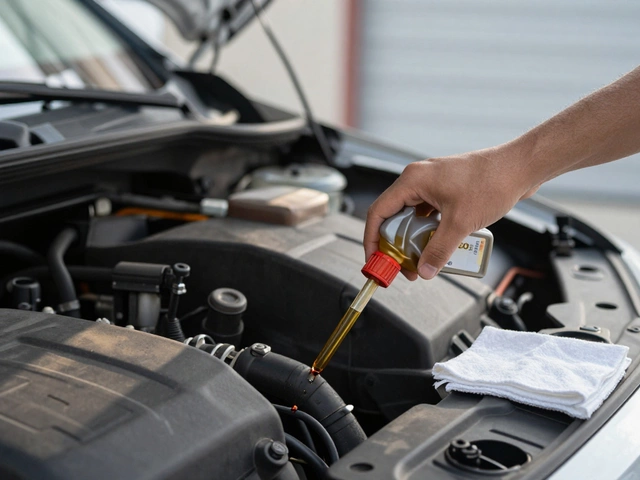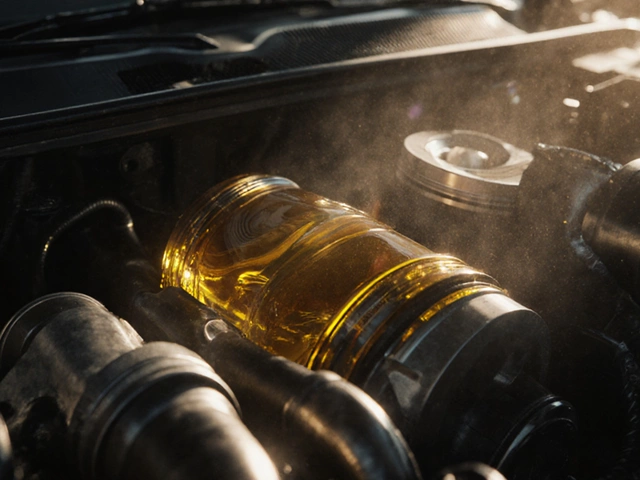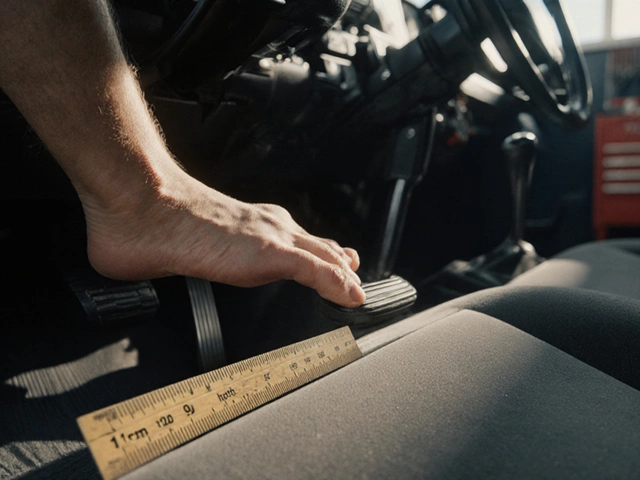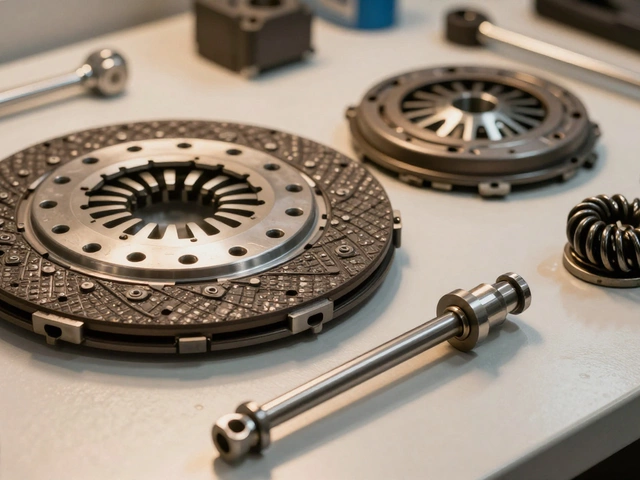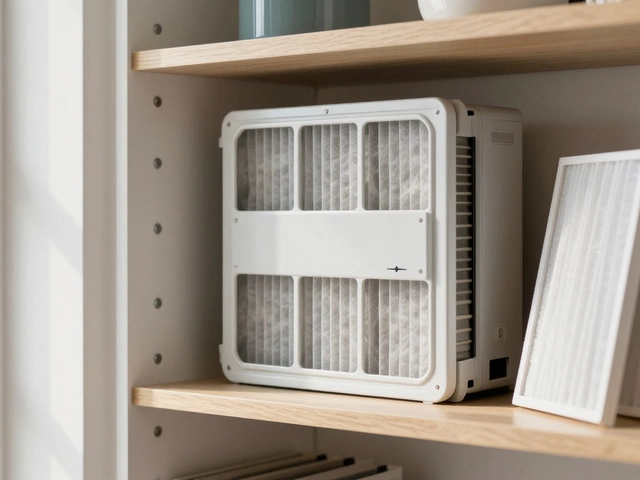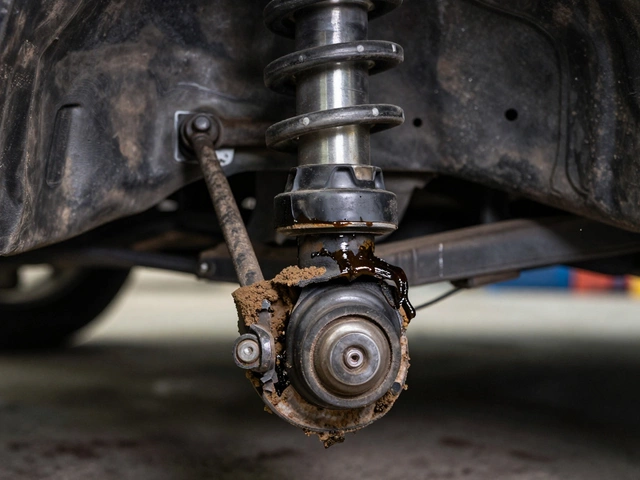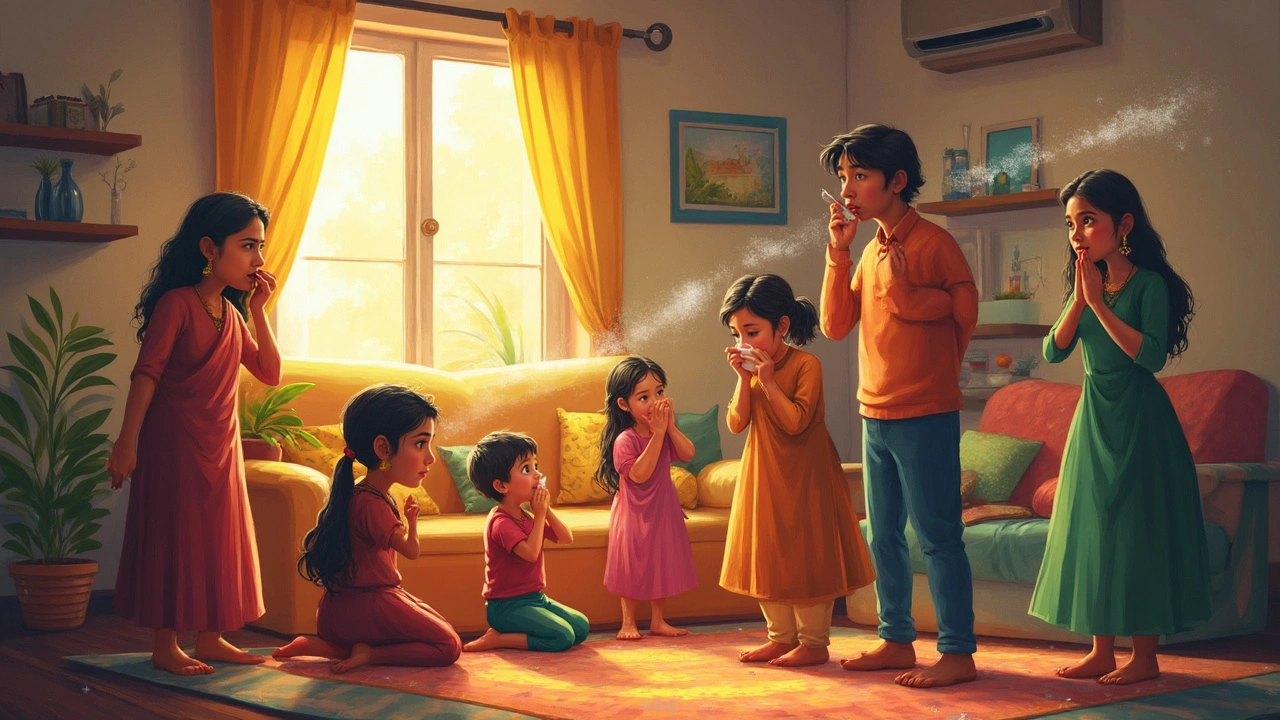
Ever wonder if your air filter's quietly accusing you of neglect? Don't worry, you're not alone. It's easy to forget these dusty wonders when life gets busy. But keeping them clean can make your home feel fresher and your wallet a bit heavier thanks to a more efficient HVAC system.
First things first, how do you know if it's time for a clean-up? One big clue is the air quality. Are you sneezing more, or is there a persistent dust layer mocking your cleaning efforts? Those might just be signs that your air filter is waving a white flag.
Another tell-tale sign is if your energy bills are creeping up like an unwanted guest. A clogged filter can make your HVAC system work overtime, which isn’t great for your budget or the environment. Feel like your HVAC is whispering sweet nothings but not actually heating or cooling efficiently? That's another red flag! Spare your wallet (and your patience) by giving that filter a check-up. With a little attention, you'll keep the air flowing and your home smiling.
- Signs Your Air Filter Is Dirty
- Consequences of a Dirty Air Filter
- How Often Should You Check and Clean?
- DIY Cleaning Tips
- When to Call in the Pros
Signs Your Air Filter Is Dirty
So, you’re wondering if your air filter is doing more harm than good. There are a few signs that it's in need of a good cleaning. Let’s break it down.
First up, if you notice a sudden spike in your energy bills, it might be a clue. A dirty air filter makes your HVAC system work harder, driving up electricity costs. Nobody wants to pay more for less, right?
Next, pay attention to the air quality in your home. If you're dusting more than usual, or if your allergies seem to be acting up as if it's pollen season year-round, it’s time to check that filter. A clean filter keeps the sneezes at bay by trapping dust and allergens.
Don’t forget about strange smells or noises. A musty odor or unexpected sounds like rattling can mean that your filter is clogged. It’s like your system’s way of crying out for help!
Lastly, if you're frequently adjusting the thermostat because one room feels like the Sahara and another like Antarctica, your air filter might not be properly doing its job of ensuring even airflow.
- High energy bills
- Worsening air quality or increased dust
- Strange odors or HVAC noises
- Uneven heating or cooling
So, keep an eye out for these signs—it might just be time for some filter TLC to get your home feeling cozy again.
Consequences of a Dirty Air Filter
If you're ignoring your air filter, you're kind of inviting a bunch of issues to crash at your place. A dirty air filter is like that friend who overstays their welcome—it can cause a whole bunch of unwanted problems.
First up, poor air quality. When your air filter's all clogged up, it can't trap dust, pollen, or pet dander effectively. This means all that junk just keeps floating around, making life miserable for anyone with allergies or asthma. You might notice more sneezing, coughing, or those pesky allergy symptoms acting up when the filter isn't cleaned regularly.
Then there's the HVAC system's performance. A clogged filter makes your system work harder to push air through. This can reduce the overall efficiency, and you'll probably notice this when you get your energy bill. More usage means more dollars out of your pocket.
Not to mention, when your HVAC system is struggling, it's at a higher risk for breakdowns. Frequent repairs or a need to replace parts can be a huge headache and an even bigger hit to your bank account.
Over time, neglecting this small task can result in needing costly repairs or replacements. So, think of cleaning your air filter like giving your HVAC system a little pampering—it appreciates it, your wallet appreciates it, and so do your lungs.
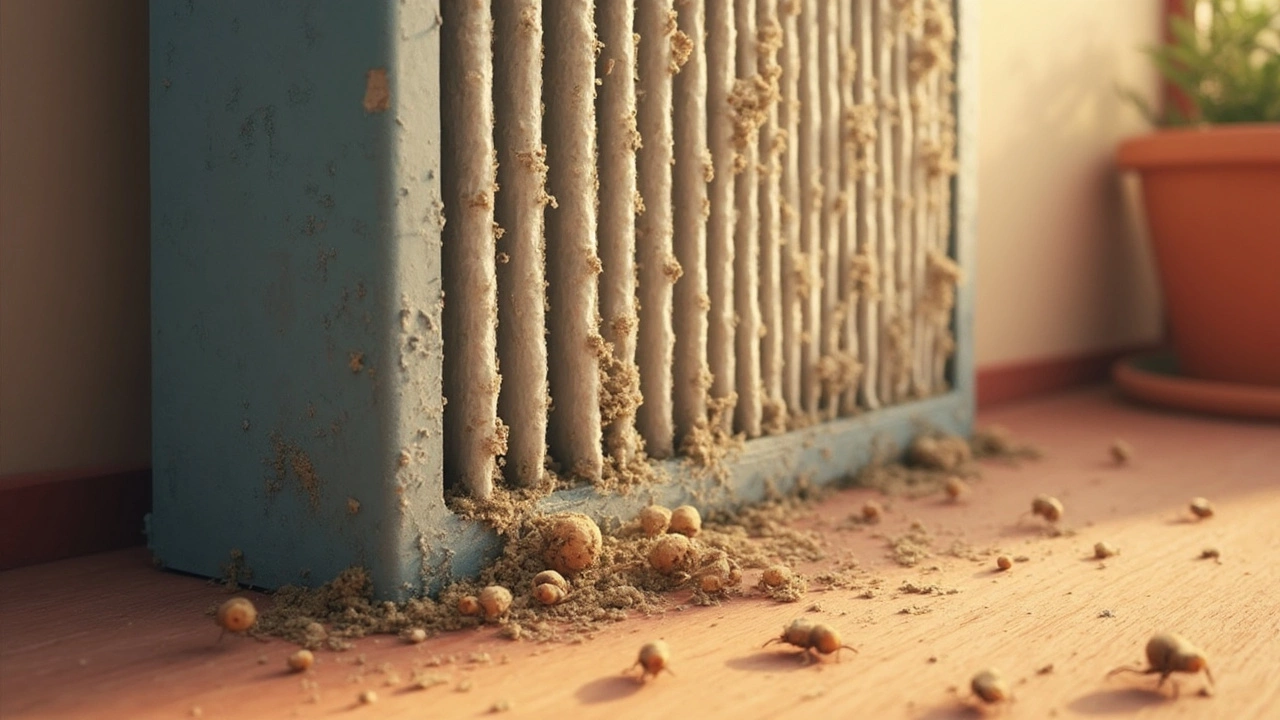
How Often Should You Check and Clean?
The million-dollar question, right? If you want your air filter to do its thing, it can't be neglected forever. Generally, experts suggest taking a peek at your air filter every month. Now, this might sound like a lot, but it's a little peek into your home's breathing system.
If you're living alone in a relatively dust-free area, you might get away with a check every couple of months. But if you've got pets shedding like it's their job, or you're in a dusty locale, it's time to be vigilant every 30 days. For most homes, a solid rule of thumb is to clean or replace the filter every three months. Keeping up this routine helps maintain top-notch air quality and keeps your HVAC system working smoothly.
Need a suggestion on remembering this little chore? Try timing the check alongside another regular activity, like paying your utility bill. Anchor it to something you already do monthly, and it becomes a breeze.
- If you have allergies or asthma, consider checking every three weeks during high pollen seasons.
- In summer or winter, when HVAC usage is high, bump up the check frequency to monthly.
Here's a little insight from the U.S. Department of Energy: Keeping your air filter clean can lower your system's energy consumption by 5% to 15%. That's money saved and another reason to make that filter check part of your routine!
DIY Cleaning Tips
Ready to take matters into your own hands and give that air filter a fresh lease on life? It's easier than you might think. First, make sure your HVAC system is completely off to avoid any dust drama while cleaning. Safety first, right?
Here's a simple guide to get you started:
- Remove the Air Filter: Pop that filter out from its snug spot. Be gentle, no need to wrangle with it.
- Inspect the Filter: Hold it up to the light. If you can't see much light passing through, your filter's begging for a clean.
- Vacuum the Dirt Away: Use a vacuum cleaner with a brush attachment to suck away the dirt. This is a great first step to get rid of loose dust and debris.
- Wash with Mild Soap: For reusable filters, mix a little warm water and mild detergent, then gently scrub the filter. Don't apply too much pressure.
- Rinse and Dry Thoroughly: Rinse away the soap under cool running water. Shake off excess water and let it air dry completely before popping it back in. Avoid using any heat source to dry, to prevent damage.
Wondering if this effort actually saves you money? In typical cases, a clean filter can lower your energy use by 5-15%. Now that’s what we call a win-win for your home and budget.
Need a quick reference for when to clean? Check this basic schedule:
| Setting | Check/Clean Frequency |
|---|---|
| Normal Household | Once every 3 months |
| Pet Owner | Once every 2 months |
| Allergy Sufferer | Monthly |
Tackling your air filters doesn't need professional skills—just a bit of elbow grease and regular checks. Keep it up, and your lungs and wallet will thank you!

When to Call in the Pros
So, you've done your best to keep your air filter clean, but sometimes things just aren't going as planned. How do you know when it's time to bring in the experts? It's simple: when the job feels a bit over your head or if your HVAC system starts acting up.
First off, if you notice strange noises from your system, like banging or wheezing, don't ignore them. These sounds can mean something's wrong beyond a dirty air filter, and a professional can dig deeper to pinpoint the issue.
Next, let's talk airflow. If you find that no matter how much you clean the filter, your system isn’t heating or cooling like it used to, you might be facing a more serious problem. Pro techs have the tools to measure airflow and diagnose whether it's a filter issue or something more intricate, like duct blockages.
Got allergies? If your allergies flare up unexpectedly and your air filter's all gunky despite regular cleaning, maybe your home has other air quality issues that need a pro's touch. A professional can test the indoor air quality and suggest solutions like a top-notch filter or even an air purifier.
Finally, if you see mildew, mold, or excessive dust gathering around vents or the filter, it could be a sign of moisture in the system—definitely a job for a pro. Mold can be sneaky, doing more harm than you think, so it's best left in expert hands.
- Strange noises from the HVAC unit
- Poor airflow despite a clean filter
- Unresolved allergy symptoms
- Visible mold or dust accumulation
These are key indicators that it's time to consider calling in the pros. A little expert help can go a long way, saving you from larger headaches down the line and ensuring your air quality is top-notch.
